Excessive screen time has become the number one child health concern among Australian parents, and the worry is widespread. According to the Royal Children's Hospital National Child Health Poll, more than 90 per cent of parents believe screen time is a problem in the community.
What’s more concerning is that this anxiety has remained high for years, suggesting many families feel unable to curb how much time children spend in front of screens. For parents already juggling work, childcare, and daily life, this concern often turns into guilt.
The good news is that not all screen time is equal, and choosing the right content can help reduce the risk and ease this worry.
Why educational TV can be a positive tool for young children
Television does not need to sit at odds with early childhood development. High-quality children’s programming can reinforce concepts children are already exploring through play, books, and everyday experiences. Many educational shows are intentionally designed to support language acquisition, emotional awareness, and problem-solving skills by using repetition, clear storytelling, and predictable structure.
When screen time is approached as one element within a wider routine that also includes movement, creative play, social interaction, and rest, it can become a helpful tool rather than a source of stress or self-doubt for parents.
What makes a TV show suitable for under fives?
Shows designed for young children tend to share a number of important developmental qualities, including:
- A slower pace that allows children time to process what they are seeing and hearing
- Simple, clear language that supports early comprehension and speech development
- Repetition and predictable structure to reinforce learning and build confidence
- Gentle visuals that avoid overstimulation and sensory overload
- A calm, reassuring emotional tone rather than loud or frantic energy
- Characters who model kindness, patience, empathy, and problem-solving in age-appropriate ways
Together, these elements help children stay engaged without becoming overwhelmed, creating a viewing experience that is calmer, more supportive, and genuinely beneficial during the early years.
10 guilt-free TV shows for under fives
Below are 10 TV shows that many parents find enriching and appropriate for children under five, helping balance screen time with learning and fun.
10. Bluey
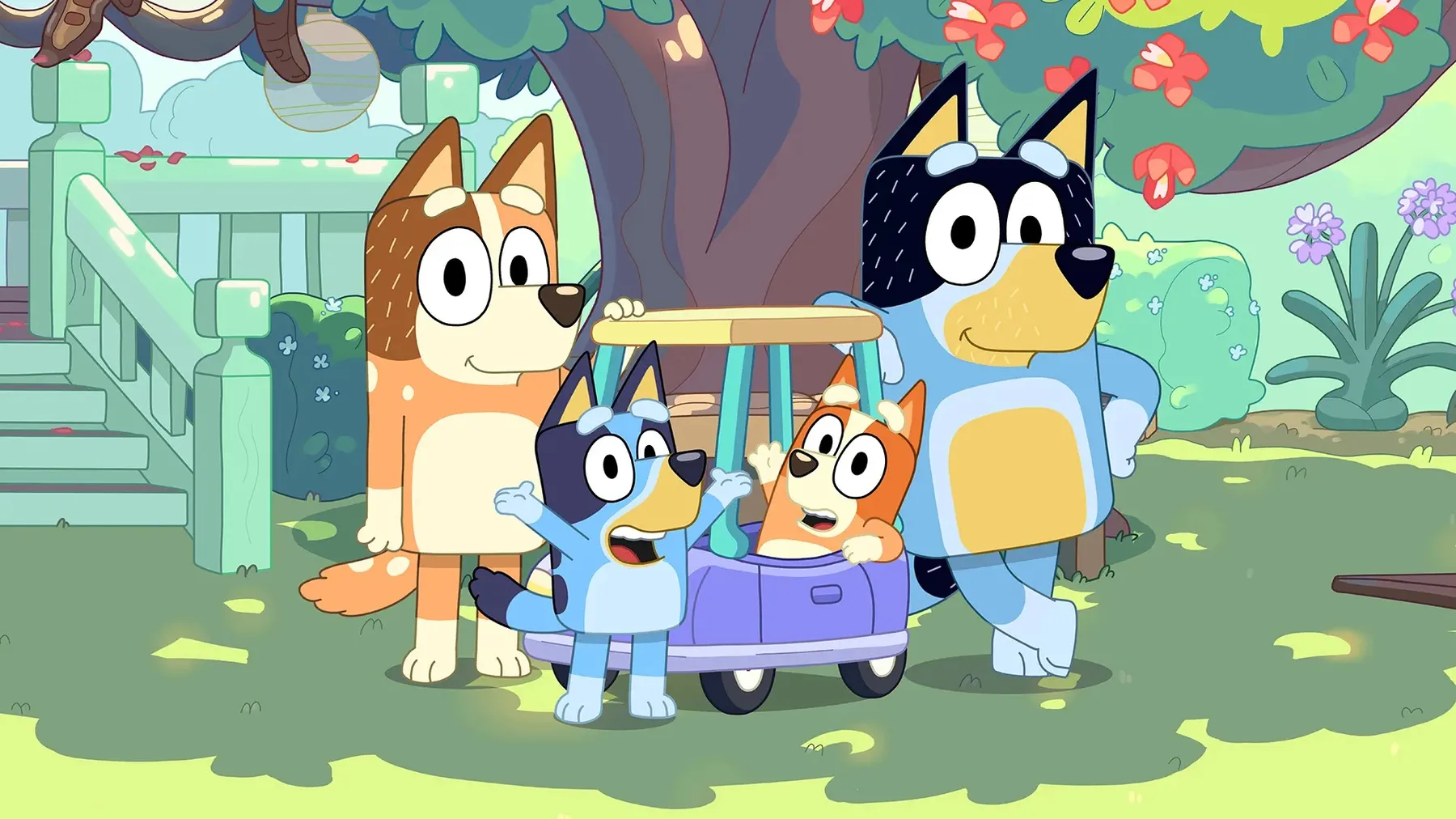 Available on ABC iview and Disney+.
Available on ABC iview and Disney+.
What is it:
Bluey has become a household favourite for good reason. Through imaginative play and everyday family moments, the show supports emotional intelligence, creativity, and social understanding in ways that feel natural rather than instructional. It resonates just as strongly with parents as it does with children, offering warmth, humour, and moments of genuine connection.
Age group: Best suited to children aged two to five.
9. Play School
Available on ABC iview.
What is it:
Play School remains one of Australia’s most trusted early learning programs. With its gentle pace, familiar segments, and focus on music, storytelling, and creative exploration, Play School supports early literacy, routine, and emotional comfort for children aged one to five. Its longevity is a testament to its thoughtful, child-centred approach, and it continues to be available on ABC iview.
Age group: Best suited to children aged one to five.
8. Ms Rachel
 Available on YouTube.
Available on YouTube.
What is it:
Ms Rachel has become especially popular with parents of toddlers, particularly those supporting early speech development. Her videos are carefully paced and built around repetition, songs, gestures, and clear pronunciation. Many speech pathologists recommend her content as a supportive tool for language learning when used intentionally and in moderation.
Age group: Ms Rachel’s videos are best suited to children aged one to three.
7. Daniel’s Tiger Neighbourhood
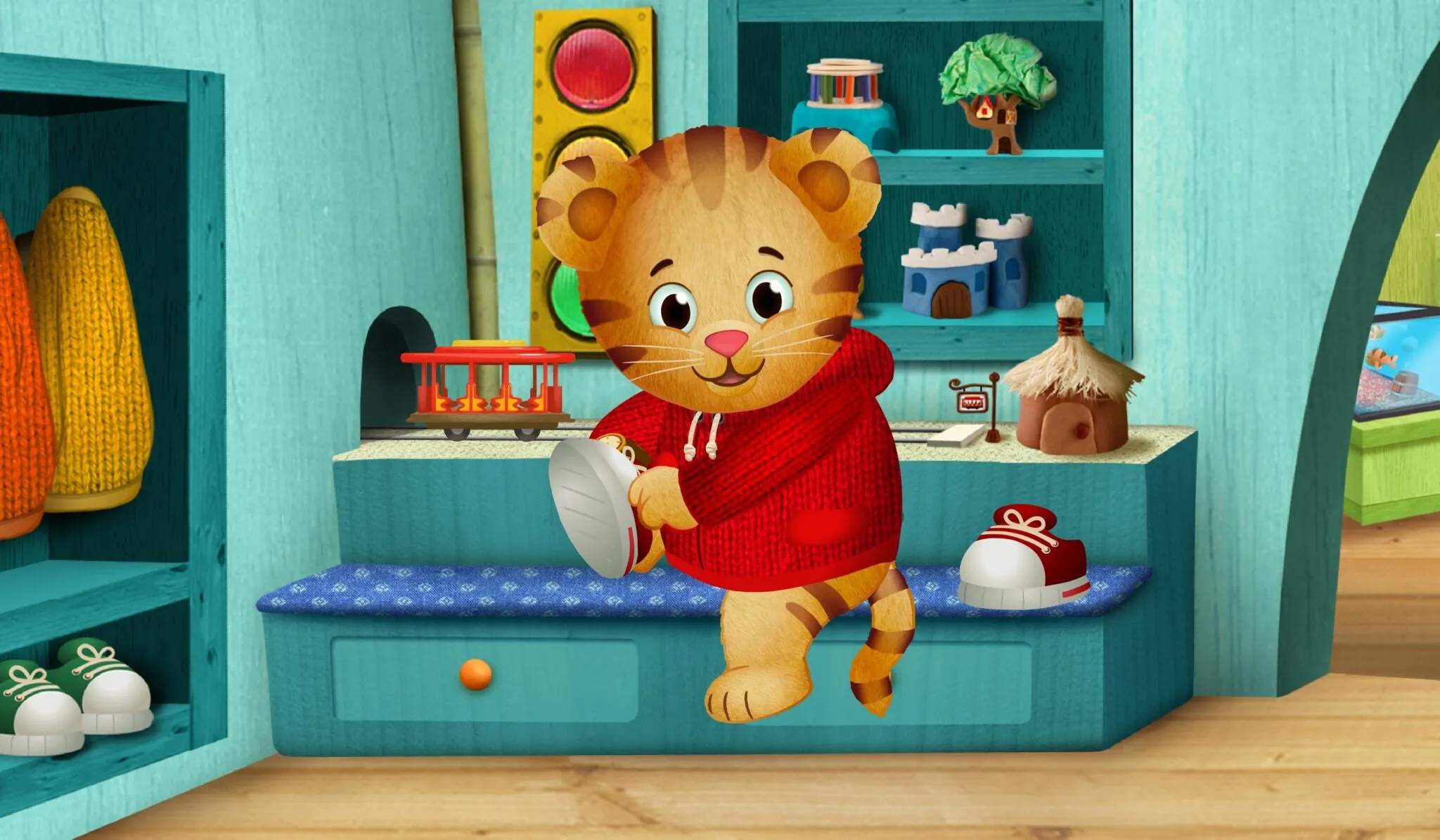 Available on ABC iview.
Available on ABC iview.
What is it:
Daniel Tiger’s Neighbourhood focuses heavily on emotional regulation and social development. Each episode explores common childhood experiences such as frustration, sharing, and trying new things, offering practical strategies children can apply in their own lives.
Age group: Suitable for children aged two to five.
6. Hey Duggee
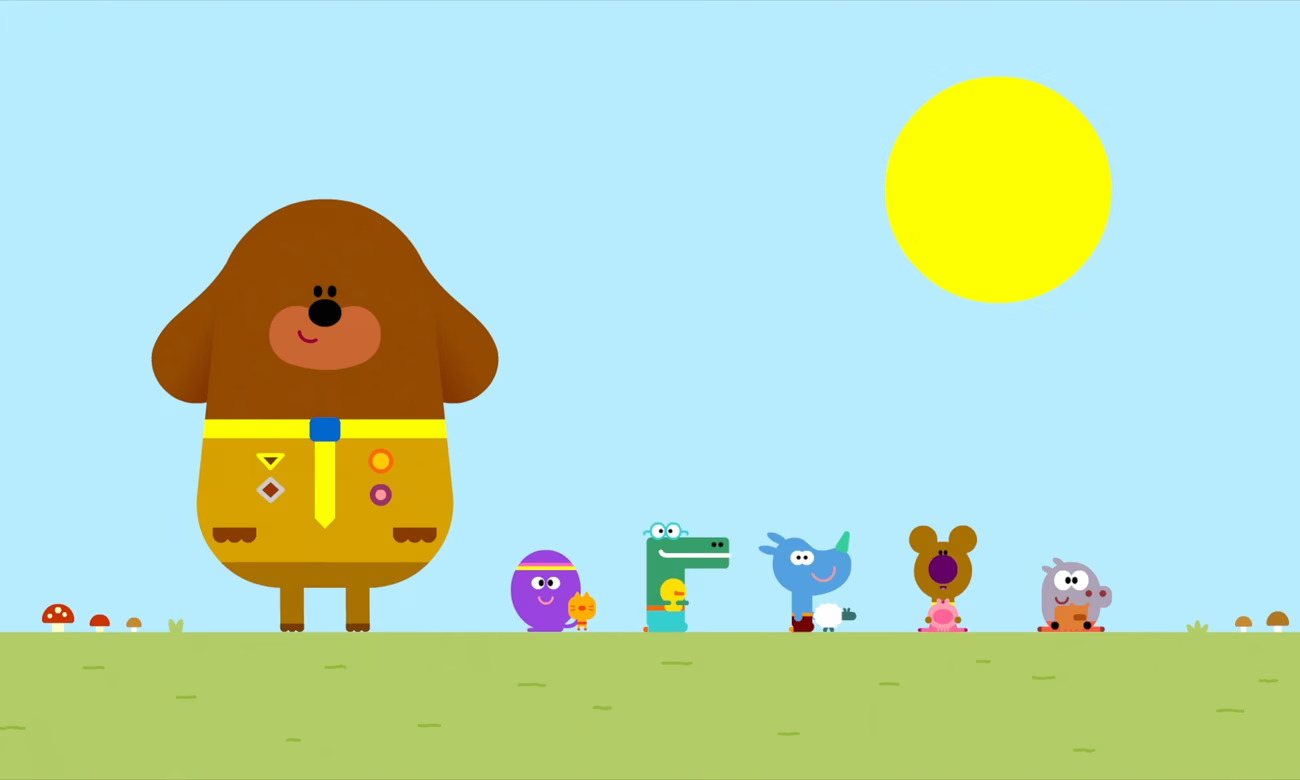 Streamed via ABC iview.
Streamed via ABC iview.
What is it:
Hey Duggee offers short, engaging episodes that encourage problem-solving, teamwork, and perseverance. Its predictable structure and gentle humour make it particularly appealing for younger children, while the positive messaging reassures parents.
Age group: Hey Duggee is suitable for children aged two to five.
5. Puffin Rock
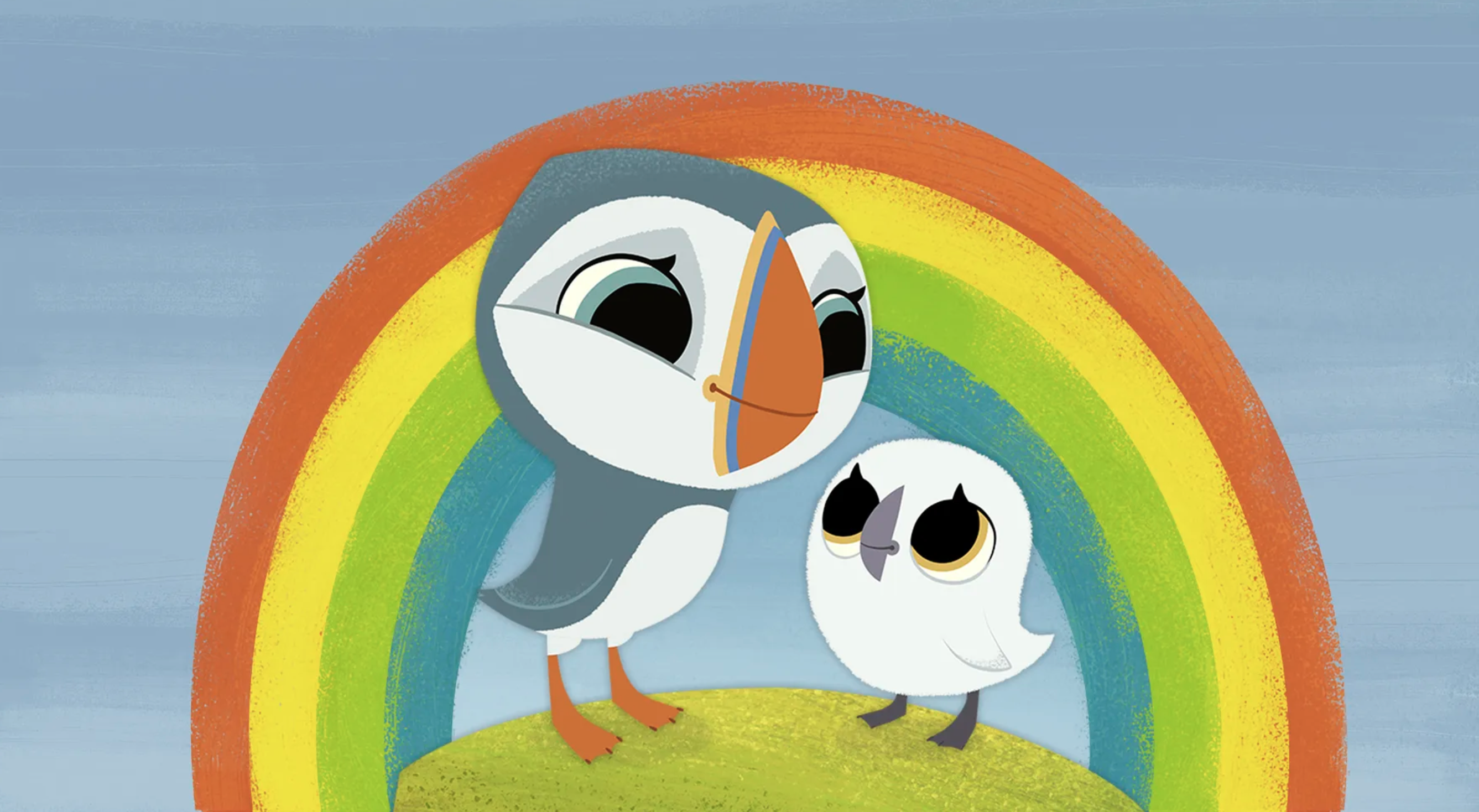 Available on Netflix.
Available on Netflix.
What is it:
Puffin Rock stands out for its calm tone and beautiful storytelling. Set in a peaceful natural environment, the series introduces children to wildlife and gentle life lessons through soothing narration and soft visuals.
Age group: It’s an excellent choice for children aged two to five who respond well to quieter programming.
4. Numberblocks
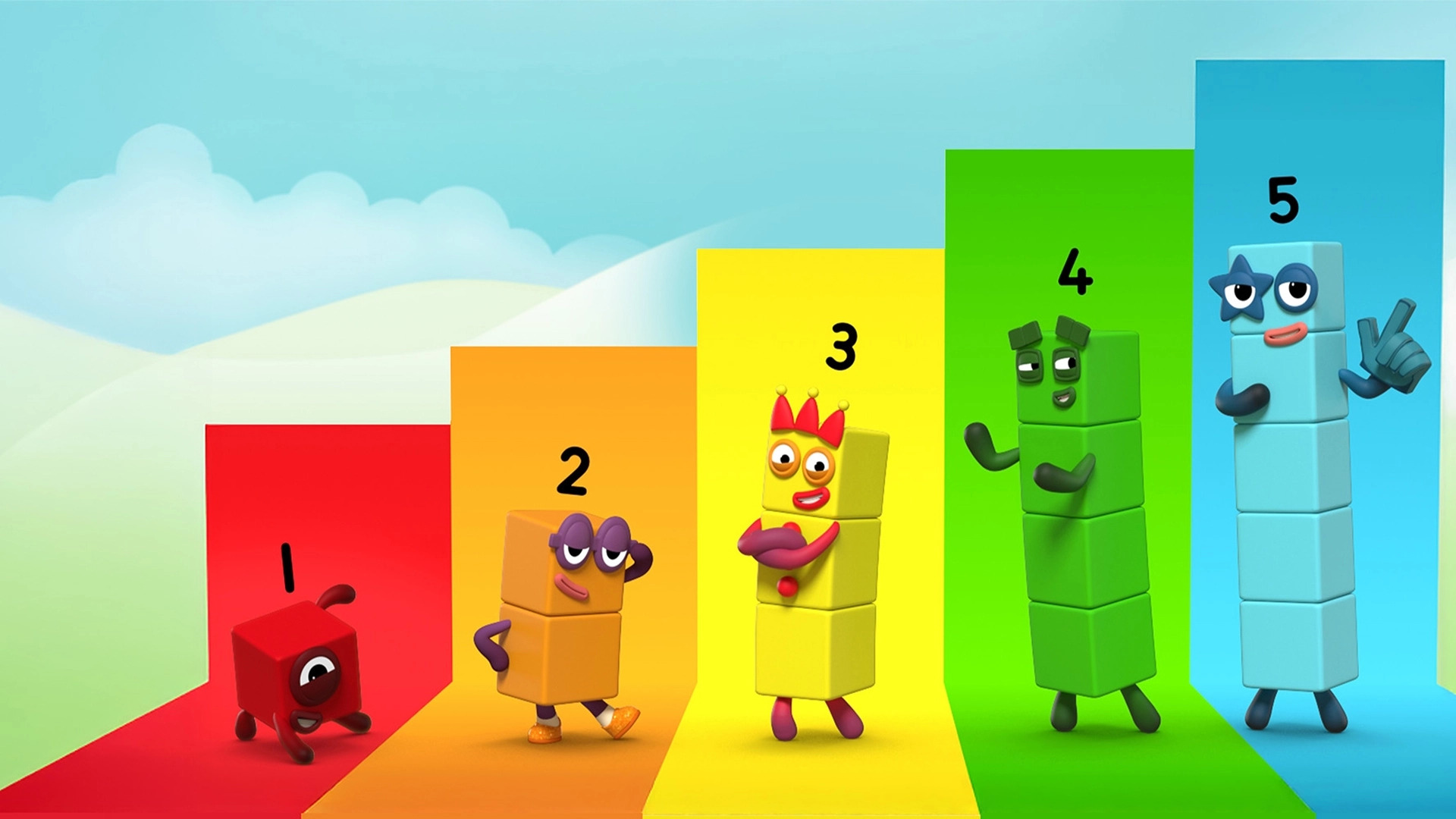 Available on ABC iview and Netflix.
Available on ABC iview and Netflix.
What it is:
Numberblocks introduces early numeracy concepts through colour, movement, and repetition. Its visual approach helps children understand numbers in a concrete and playful way, making it especially effective for building early maths confidence during the preschool years.
Age group: Best suited to children aged three to five.
3. Gabby’s Dollhouse
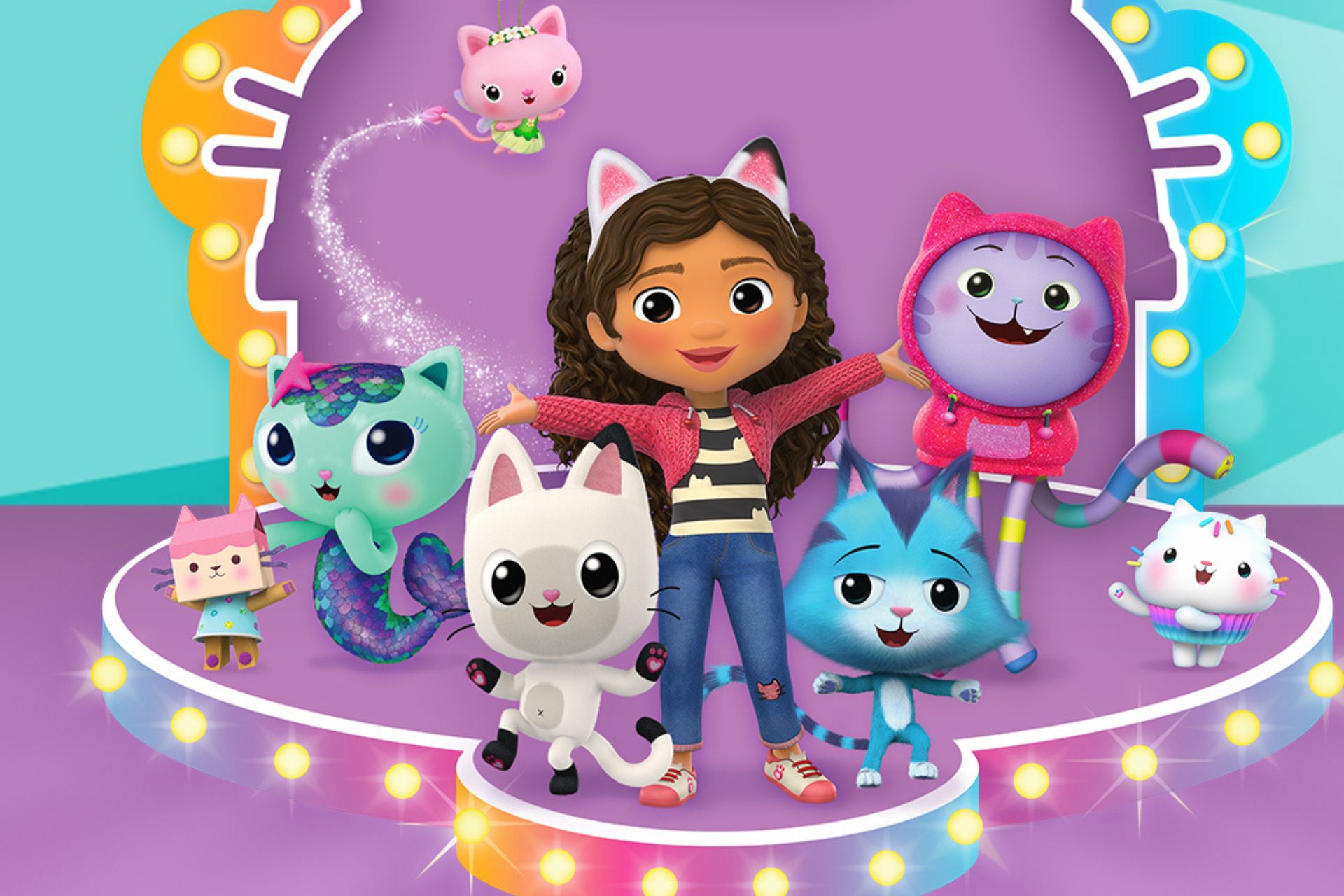 Available on Netflix.
Available on Netflix.
What is it:
Gabby’s Dollhouse combines live-action and animation to create a colourful world centred on creativity, problem-solving, and imaginative play. Each episode follows Gabby and her friends as they explore themed dollhouses and work through challenges in upbeat, playful ways.
Age group: Best suited to children aged two to five.
2. Sarah & Duck
Streamed on ABC iview.
What is it:
Sarah & Duck follows the everyday adventures of a young girl and her best friend, Duck, as they explore their neighbourhood and encounter quirky characters and gentle situations. The series uses imaginative storytelling, subtle humour, and a slower pace to encourage curiosity, creative thinking, and problem-solving. Its calm narration and whimsical tone create a reassuring viewing experience that feels thoughtful rather than overstimulating.
Age group: Best suited to children aged two to five.
1. Sheriff Labrador
 Available on Youtube.
Available on Youtube.
What is it:
Sheriff Labrador is a preschool animated series focused on teaching young children everyday safety skills. Each episode centres on common situations such as crossing the road, interacting with strangers, using household items safely, or navigating public spaces. Through clear scenarios and simple consequences, the show helps children recognise potential dangers and understand safe behaviour in a way that is direct but not frightening.
Age group: Sheriff Labrador is well suited to children aged three to five.
How much screen time is too much?
Even the best educational TV should come with limits. Australian guidelines recommend no screen time for children under two, less than one hour a day for ages two to five, and no more than two hours of recreational screen time for older children.
But for many families, those limits are hard to stick to. Screens are everywhere, routines are stretched, and parents often know they are relying on them more than they would like, particularly when everyday interactions are interrupted by devices (a pattern often described as technoference).
Neuroscience educator Nathan Wallis warns that without clear boundaries, screen use can quickly spiral, leaving parents feeling stuck in a cycle of overuse and guilt.
In support of this, the American Academy of Pediatrics recommends that you:
- Choose your child's content carefully, with a focus on positive, educational and trusted sources,
- Make a plan, set limits and stick to routines around screen time,
- Watch content together as ‘screen buddies', so you can see how your child responds to it and bond over entertaining episodes, and
- Be mindful of your own screen habits around children.
Choosing quality content, setting firm routines, and balancing screen time with play can reduce the risks. As Dr. Margie Danchin from the Royal Children's Hospital notes, encouraging movement and outdoor play remains one of the simplest ways to keep screen time in check.
“Our lives are saturated by digital screens, and it can be difficult to reduce screen time for children when so much of their education and recreation activities are on these devices.However, if we continue to encourage physical activity and time outdoors, we can reduce screen time.”
Support your child’s learning on screen and beyond
While high-quality TV can complement early learning, children benefit most from nurturing environments that support social interaction, play-based learning, and emotional development. Choosing the right childcare setting plays a crucial role in shaping these experiences during the early years.
With Care for Kids, parents can easily find and compare childcare centres across Australia, explore availability, and discover early learning environments that align with their family’s values and priorities.
Compare childcare centres in Australia and find the right fit for your family today.

































